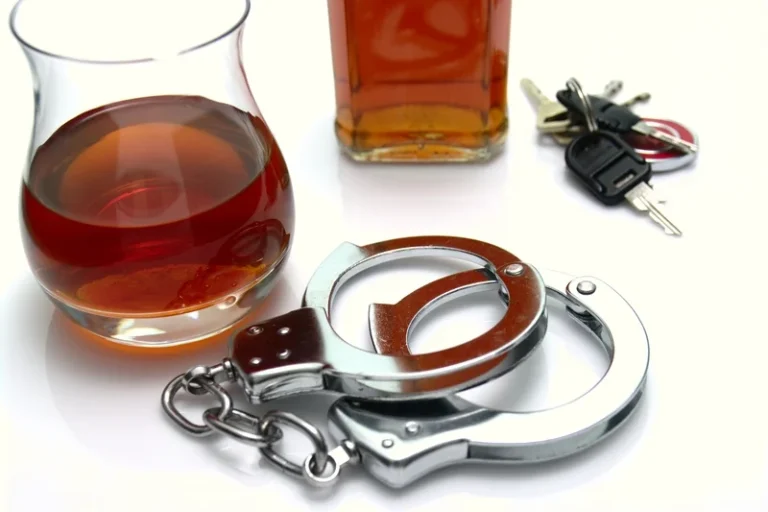
The short-term effects of alcohol can be broken down into three areas. A small dose of alcohol (1 to 2 drinks) lowers inhibitions and the ability to concentrate. A medium dose (3 to 4 drinks) causes slurred speech, altered emotions, and poor vision. A higher dose (5 drinks or more) can cause uncontrolled urination, alcohol poisoning, and breathing problems. In conclusion, if you need to detox your system of alcohol in 24 hours, there are several steps you can take to speed up the process.
Best Detox for a Bloated Stomach (Easy Guide)
Understanding the side effects and risks of detoxifying from whatever drugs you’ve been taking is important to prepare yourself for a safe and successful detox. If you only took a drug once, you will likely have very low amounts in your system, and the detox process won’t take long. Whether or not a drug you have been taking will show on a drug test depends on a few factors, including the type of test.
Liver Cirrhosis

This swelling increases pressure within the brain, leading to symptoms like confusion, drowsiness, and headaches. In severe cases, it might result in high blood pressure and a slowed heart rate. Zinc deficiency can hinder the effectiveness of hepatic enzymes that break down alcohol, which intensifies and prolongs the effects of alcohol intoxication. Adding zinc-rich food sources to your diet will speed up alcohol metabolisation.
How Do You Eliminate Alcohol From Your System?
The liver breaks down most consumed alcohol, eliminating 95% of it from the body. Two enzymes do most of this work, and the most important is Alcohol Dehydrogenase (ADH). Eating probiotic-rich foods can help your digestive system recover from the consumption of alcohol more quickly. If you have been drinking, green tea is an excellent way to preserve your liver and counter the symptoms how to flush your system of alcohol in 24 hours of intoxication. So, it is essential to make sure you drink plenty of water before, during, and after drinking.
Drink Enough Water Every Day
While sleeping late at night is not advisable for most people, it’s an excellent way to flush toxins out of your system. As you fall asleep at night, your liver gains enough time to metabolize all the alcohol in your body. However, you should avoid going to bed after drinking a lot because it may lead to an overdose or brain damage.
- Although alcohol is typically metabolized within 25 hours, there are several factors that can make that process longer or shorter than average.
- While there’s no instant cure for alcohol in your system, combining immediate actions with long-term lifestyle changes can significantly impact how quickly you recover.
What Is Considered to Be One Drink?
We Level Up rehab treatment & detox center can provide you, or someone you love, the tools to recover from this with professional and safe treatment. Feel free to call us to speak with one of our counselors to learn more about Alcohol Detox Treatment and the safest ways on how to flush your system of alcohol. We can inform you about this condition and clarify issues like alcohol withdrawal symptoms. The liver is primarily responsible for processing and eliminating alcohol from your body. Generally, it takes about one hour for your liver to metabolize one standard drink. Still, the rate of metabolism can be influenced by various factors, such as gender, body weight, liver health, and the amount of alcohol consumed.
And being under the care of a qualified provider can help keep you safe if you experience dangerous withdrawal symptoms like delirium tremens, which may occur in cases of severe AUD. Your symptoms may be similar, such as anxiety, headaches, nausea, and sleep disturbance. But hangover symptoms tend to last no more than one day, while alcohol withdrawal can last up to a week or more. On average, your body eliminates alcohol at a rate that would reduce your BAC by 0.015 per hour. That’s the equivalent of processing about one alcoholic beverage each hour. At that rate, you can still be over the legal limit of 0.08 to drive the next morning if you’ve had several drinks or more.

How to Get Rid of Alcohol Breath in an Hour?
- Alcohol metabolism rates indeed vary, and the liver’s ability to process alcohol at a rate of one standard drink per hour is a general guideline.
- This is thanks to the gut microbiome’s close relationship to our immune system, aiding in the breakdown of toxins.
- You may be underestimating how much you drink because you (or your generous friend) aren’t using standard measurements.
- Other factors affect the intoxication level that will cause BAC to rise more quickly and fall more slowly.
- And as long as these systems are healthy, they do their job automatically with no days off.
- You need to drink no specific amount of water to remove alcohol from your system.
It is always best to drink responsibly and in moderation and to never drink and drive. If you are concerned about your alcohol consumption, speaking with a professional is vital. Be patient, listen to your body, and focus on flushing toxins safely. Using fake urine, taking detox drinks, or going to other lengths to try and hide signs of drug use simply won’t work, and it can have serious consequences.
Tips for Mindful Drinking
Instead, partnering with a caring team of professionals can help you find the path to lasting recovery. For opioids, the detox process and accompanying withdrawal symptoms can last for 14 days or more. Alcoholic beverages cause dehydration, which Alcoholics Anonymous can immediately give a person a massive headache after drinking. As a result, they might either take a day off and stay asleep for the entire day or go to work and produce poor results.
Liver Health Formula

After taking alcoholic beverages, there are situations where individuals need to get the liquid out of their systems immediately. Some long-term health threats of drinking excessive alcohol include digestive issues, heart diseases, high blood pressure, and a poor immune system. On the other hand, common short-term risks involve having a hangover, alcohol poisoning, road accidents, and physical assault. There’s nothing wrong with celebrating with an alcoholic drink here and there. However, long-term or excessive use can slow down that process and could damage your heart, liver, kidneys, and gut health.
